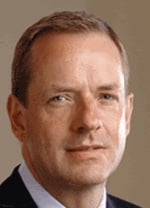 |
| GSK CEO Andrew Witty |
In 2013, GlaxoSmithKline ($GSK) CEO Andrew Witty pledged to end doctor payments by 2016 as part of an effort to clean up the company's image. But so far, little has changed in that department.
Last year, the British pharma giant forked over about $15 million to U.S. physicians who promoted its drugs and attended events to learn about its products, Bloomberg reports--only a small tick downward from the year prior. Thousands of doctors received meals, travel, and consulting and speaking fees, with the largest consulting payment reaching $195,000.
"We expect overall payments to continue decreasing as we continue to implement our new approach to working with healthcare professionals," company spokeswoman Sarah Alspach told the news service.
The doctor-payment practice has come under increased scrutiny lately with the launch of Open Payments, a database that the Center for Medicare and Medicaid Services rolled out as part of the Physician Payments Sunshine Act. Drugmakers, doctors and industry-watchers have butted heads over whether receiving handouts actually influences doctors' behavior, with pharma generally arguing that it does not.
Still, Witty has vowed to end the practice as part of a suite of reforms meant to restore his company's injured reputation. Two years ago, Chinese authorities broke open a local bribery scandal, accusing the company of funneling $489 million to healthcare professionals through travel agents. And before that, Glaxo paid $3 billion to settle a federal investigation into its sales and marketing practices.
To get itself where it's said it would be next year, Glaxo will have "digital, personal and real-time applications" in place by the start of 2016 to provide information to medical professionals, rather than relying on paid speakers, Alspach told Bloomberg.
That's not all the company is doing to earn brownie points with the public. As part of its Patient First program, the company also said it would eliminate quota-based sales incentives for reps--an idea that's drawn skepticism from industry-watchers who have said it would hurt sales.
So far, Glaxo hasn't been able to prove them wrong. Its biggest recent launches--for respiratory up-and-comers Breo and Anoro, both pegged as potential blockbusters--have underperformed expectations, though Witty promised investors in February that the drugs were finally making some progress in picking up market share. Those struggles led the company to revisit its model in April, and it set up a task force to come up with a "simplified" version of Patient First.
- get more from Bloomberg
Special Report: Pharma's Top 11 Marketing Settlements - GlaxoSmithKline